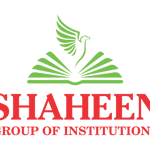Hundreds of madrasa graduates are in mainstream colleges now, thanks to a project of Allama Iqbal Education Society, which runs the Shaheen College in Bidar and other cities.
By Rishikesh Bahadur Desai
Looking like a doctor in a Hindi movie, Abu Sofyan can offer both “ Dawa andDua (medicine and prayers) to his future patients. The second year MBBS student at Raichur Institute of Medical Sciences is a ‘Hafiz’, who can recite the Quran by heart.He spent over six years in madrasas in Karnataka and Tamil Nadu before getting into high school. The boy from Hebbal in Bengaluru, had never been to school before that, nor studied subjects like Science, Mathematics or languages other than Arabic and Urdu. But, the ‘disciplined madrasa life’ helped him get good grades in pre- university and a medical college seat. Ahmed Mehboobsaab, an engineering college student, also extols his early education. “I realise that the basic principles of engineering are about the wholesome study of nature that the Quran emphasises,” he says. Coming from a poor family in Chikkabanavara, in north Bengaluru taluk, he spent nearly a decade in a madrasa. “When I joined high school, I felt transplanted into a strange place. I had difficulty keeping up. But I managed to leave with good marks. I never imagined I would become an engineer,” he says. Their experiences are not isolated. Hundreds of madrasa graduates are in mainstream colleges now, thanks to a project of Allama Iqbal Education Society, which runs the Shaheen College in Bidar and other cities. Six years ago, Shaheen colleges began offering Hifz”Ul- Quran plus course, bringing mainstream education to madrasa system students.
Boys and youths from Haryana, UP and Karnataka who had completed 10-15 years of madrasa education were enrolled in eighth and ninth standard. They underwent a 10-month bridge course, learning Kannada, English, Mathematics, Science and Social Studies. They were then ready to face the SSLC board. With their rigorous working style, most passed. They also got focused training, with one teacher for every four students. The Bidar centre has trained around 350 students since 2011.
Students from Bihar, U.P. and West Bengal picked up Kannada and got good marks. Many are now studying arts, commerce and science. Some have got into engineering and medicine. Hifz-ul- Quran rates itself a success, with Shaheen college supervising the opening of 10 similar centres, including in Kolkata and some towns in UP. Shaheen runs a centre in Bengaluru too.
Playing a Positive Role
Welcoming the initiative, Hafiz Moulana Waheedudin Umri, head, Ulema Council, Karnataka, says: “Some people blame madrasa education for making young people vulnerable to right wing influences. But it is not so. Several highly educated youth have joined terror outfits. It is the weakness in personality that attracts youth to such disastrous pursuits,” he says. “A youth with a wholesome education is less likely to stray. Full understanding of the world and exposure to modern subjects will help youth discard wrong influences,” he says. The number of students in Shaheen Hifz-ul- Quran plus class has gone up from 12 in 2011 to 200 now.
There are nearly 400 Hafiz students in such courses. “Graduates of madrasas have few job opportunities. Most end up opening another madrasa. Almost all are deprived of chances of getting professional education or higher education. This may be their only chance,” says Abdul Quadeer, secretary of the Shaheen group of institutions.
“We began in the face of skepticism from some Ulema, but we succeeded. Now, they have all come around as they realised we were training boys once they were out of the madrasas and not while they were inside,” Mr.Quadeer says.
(Extracted from: thehindu.com)


COMMENTS